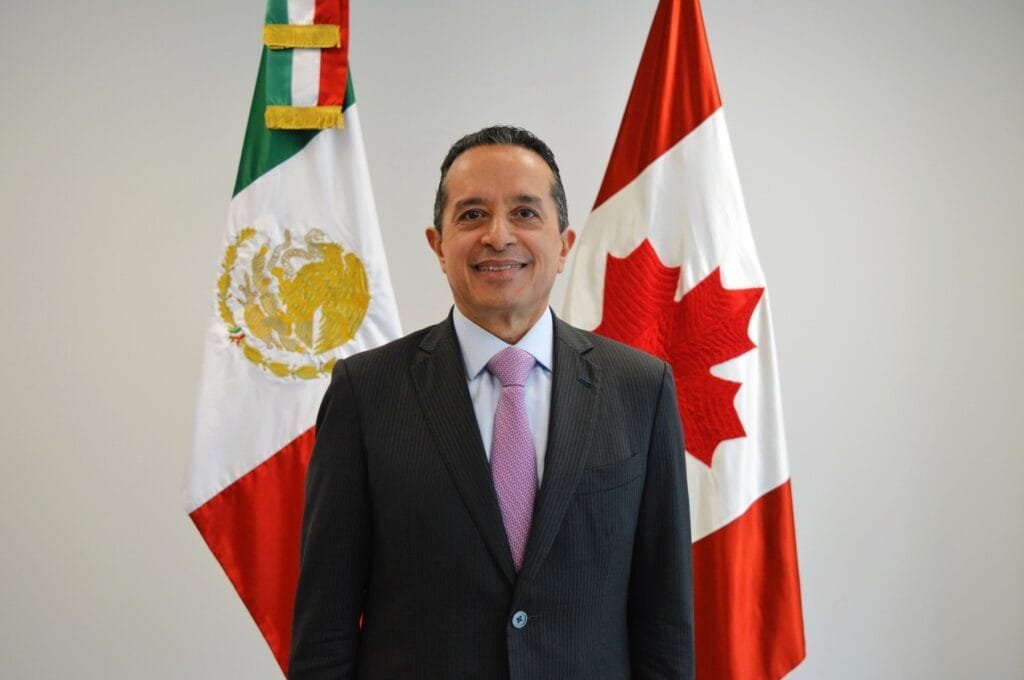Former Governor Carlos Joaquín González Under Investigation for Alleged Corruption During Tenure
Carlos Joaquín González, Mexico’s current ambassador to Canada and former governor of Quintana Roo, is under investigation for alleged administrative irregularities involving 7 billion pesos during his term as governor from 2016 to 2022. These allegations, coupled with concerns about his limited involvement in addressing recent diplomatic issues between Mexico and Canada, have intensified scrutiny over his political career.
González, originally from Quintana Roo, began his political career with the Institutional Revolutionary Party (PRI) before joining a coalition of the Democratic Revolution Party (PRD) and the National Action Party (PAN). His election as governor in 2016 marked a political shift in Quintana Roo, ending decades of PRI dominance. Promising reform, González focused on public safety, economic diversification, and investments in tourism infrastructure. However, allegations of corruption and mismanagement have since clouded his reputation.
During his tenure, investigators allege that 7 billion pesos allocated for state programs were misused or misappropriated, failing to benefit the intended recipients. In addition, his administration has been accused of negligence in handling critical administrative files from his predecessor Roberto Borge’s term. These files, which documented cases of embezzlement and financial misdeeds, were reportedly allowed to lapse, preventing further investigation or prosecution. As a result, the Secretariat of the Comptroller (Secoes) of Quintana Roo has filed criminal complaints against officials from González’s administration, with ongoing investigations aiming to recover damages.

Appointed ambassador to Canada in March 2023 under the administration of former President Andrés Manuel López Obrador, González’s diplomatic performance has been criticized. His limited involvement in key issues, including labor disputes, energy policies, and lobbying for the United States-Mexico-Canada Agreement (USMCA), has raised questions about his effectiveness in the role. President Claudia Sheinbaum has noted that all ambassadors are under review, and González’s lack of activity will be a factor in determining his future in the position.
The legal implications for González could be severe if the allegations are confirmed. Criminal complaints related to mismanagement and administrative negligence could lead to prosecution, with potential penalties ranging from fines to imprisonment. Furthermore, his position as ambassador is at risk, as the allegations have tarnished his political image and brought into question his suitability for public service. These accusations reflect broader challenges of corruption and mismanagement in Mexico’s political system, which continue to undermine public trust in governance.
For Quintana Roo, a state heavily reliant on tourism, the alleged mismanagement of funds meant for public welfare, infrastructure, and safety could have far-reaching consequences. Scandals of this nature not only affect local communities but also threaten the state’s ability to attract international investment and maintain its status as a premier tourist destination. As the investigation progresses, the case against González is being closely watched as a test of Mexico’s ability to hold public officials accountable and uphold transparency in governance.
Discover more from Riviera Maya News & Events
Subscribe to get the latest posts sent to your email.

